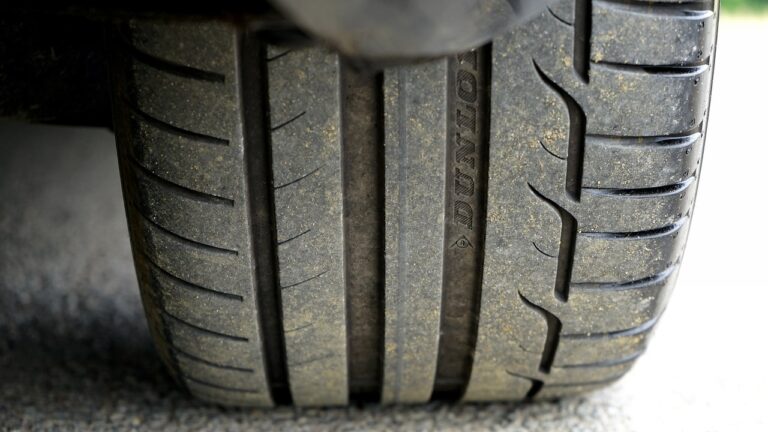Promoting Sustainable Supply Chains Through Collaboration Between Auto Manufacturers and Recyclers: World 7 login, Mahadev book id login, Silver777 login
world 7 login, mahadev book id login, silver777 login: As the world becomes more aware of the impact of climate change and the importance of sustainability, industries are starting to rethink their practices to ensure a more sustainable future. The automotive industry is no exception, with a growing trend towards promoting sustainable supply chains through collaboration between auto manufacturers and recyclers.
Why is Collaboration Between Auto Manufacturers and Recyclers Important?
Collaboration between auto manufacturers and recyclers is crucial for promoting sustainable supply chains in the automotive industry. By working together, they can ensure that end-of-life vehicles are properly recycled and that valuable materials are recovered and reused. This helps to reduce waste, conserve resources, and lower the environmental impact of the automotive industry.
Auto manufacturers can benefit from collaborating with recyclers by gaining access to a stable and reliable source of recycled materials. This can help reduce their reliance on virgin resources, which are becoming increasingly scarce and expensive. Recyclers, on the other hand, can benefit from working with auto manufacturers by gaining a steady stream of end-of-life vehicles to recycle, as well as access to expertise and resources to help them improve their recycling processes.
How Can Collaboration Between Auto Manufacturers and Recyclers Promote Sustainable Supply Chains?
There are several ways in which collaboration between auto manufacturers and recyclers can promote sustainable supply chains in the automotive industry. One of the key ways is by increasing the recycling rate of end-of-life vehicles. Currently, only around 80% of a vehicle’s materials are recycled at the end of its life, meaning that valuable materials are being lost to landfill. By working together, auto manufacturers and recyclers can improve the recycling processes and technologies used to recover more materials from end-of-life vehicles.
Another way collaboration can promote sustainable supply chains is by encouraging the use of recycled materials in the manufacturing of new vehicles. By working together, auto manufacturers and recyclers can develop new technologies and processes that make it easier to incorporate recycled materials into vehicle production. This not only helps to reduce the demand for virgin resources but also helps to lower the carbon footprint of the automotive industry.
Furthermore, collaboration between auto manufacturers and recyclers can help to improve the design of vehicles to make them more recyclable. By considering recyclability at the design stage, auto manufacturers can make it easier for recyclers to recover valuable materials from end-of-life vehicles. This can help to reduce the amount of waste generated by the automotive industry and make the recycling process more efficient.
What are the Challenges of Promoting Sustainable Supply Chains Through Collaboration?
While collaboration between auto manufacturers and recyclers has many benefits, it also comes with its challenges. One of the main challenges is the lack of standardization in recycling processes and technologies. Each recycler may use different methods to recover materials from end-of-life vehicles, making it difficult for auto manufacturers to work with multiple recyclers. By standardizing recycling processes and technologies, collaboration between auto manufacturers and recyclers can be more efficient and effective.
Another challenge is the cost associated with recycling end-of-life vehicles. Recycling can be a costly process, and auto manufacturers may be hesitant to invest in collaborations with recyclers if they are not confident in the return on investment. By working together to improve recycling processes and technologies, auto manufacturers and recyclers can reduce costs and make collaboration more financially viable.
How Can Auto Manufacturers and Recyclers Overcome These Challenges?
To overcome the challenges of promoting sustainable supply chains through collaboration, auto manufacturers and recyclers must work together to develop solutions that benefit both parties. One way to do this is by investing in research and development to improve recycling processes and technologies. By working together to develop new methods for recovering materials from end-of-life vehicles, auto manufacturers and recyclers can make recycling more cost-effective and efficient.
Another way to overcome challenges is by establishing partnerships and alliances with other stakeholders in the automotive industry. By working with suppliers, government agencies, and other organizations, auto manufacturers and recyclers can leverage their resources and expertise to promote sustainable supply chains. By building a network of partners, they can overcome challenges and achieve their sustainability goals.
FAQs
1. What are the benefits of collaborating with recyclers for auto manufacturers?
Collaborating with recyclers can help auto manufacturers gain access to recycled materials, reduce their reliance on virgin resources, and lower their environmental impact.
2. How can collaboration between auto manufacturers and recyclers promote sustainable supply chains?
Collaboration can help increase the recycling rate of end-of-life vehicles, encourage the use of recycled materials in vehicle production, and improve the design of vehicles to make them more recyclable.
3. What are some of the challenges of promoting sustainable supply chains through collaboration?
Challenges include the lack of standardization in recycling processes, the high cost of recycling end-of-life vehicles, and the need to overcome financial barriers to collaboration.
4. How can auto manufacturers and recyclers overcome these challenges?
By investing in research and development, standardizing recycling processes, and establishing partnerships with other stakeholders in the automotive industry, auto manufacturers and recyclers can overcome challenges and promote sustainable supply chains.







